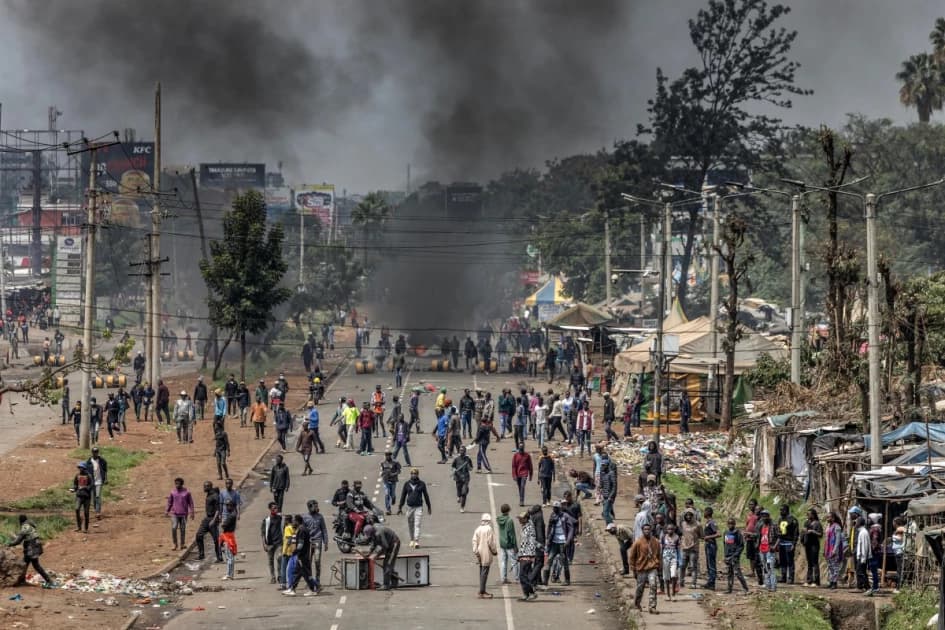We're loading the full news article for you. This includes the article content, images, author information, and related articles.
The family of a 24-year-old woman who died after being arrested during the Saba Saba protests in Nanyuki is demanding justice, alleging that she was beaten by police while in custody.

Nanyuki, Kenya – July 14, 2025
The family of Julia Njoki, a 24-year-old woman who died after being arrested during the July 7 Saba Saba protests in Nanyuki, is demanding a full investigation and accountability, alleging that she succumbed to injuries inflicted while in police custody. Her death has sparked national outrage and renewed scrutiny of police conduct during demonstrations.
According to her mother, Njoki was arrested by officers while participating in the protests and taken to a local police station. The family claims she was beaten while handcuffed and later taken to hospital while unconscious. She died shortly thereafter. “My daughter left home healthy. She died in the hands of those who were supposed to protect her,” the grieving mother told reporters.
The Nanyuki police commander has confirmed that an internal investigation is underway and that an autopsy will be conducted to determine the official cause of death. One officer has been suspended pending the outcome of the probe, but no charges have been filed so far.
The family, however, is not waiting quietly. They have vowed to pursue justice through the courts, and their cause has been taken up by human rights organizations, which have condemned the incident as emblematic of the systemic abuse and impunity long associated with Kenya’s law enforcement agencies.
“This is not an isolated case,” said Maina Mwendwa, a legal officer with the Independent Medico-Legal Unit (IMLU). “What happened to Julia Njoki reflects a broader crisis of accountability and the unchecked use of force against civilians, particularly during politically charged moments.”
The July 7 Saba Saba protests, which marked the anniversary of Kenya’s historic pro-democracy movement, were largely youth-led and focused on economic grievances, government accountability, and constitutional rights. In several towns, including Nairobi, Kisumu, and Nanyuki, the demonstrations were met with a heavy police presence, arrests, and reports of excessive force.
Njoki’s case has now become a rallying point for both justice advocates and citizens outraged by recurring reports of police brutality. The Kenya National Commission on Human Rights (KNCHR) has called for an independent investigation, while Amnesty International Kenya has urged the government to “end the pattern of unlawful killings and ensure victims and their families receive justice.”
Despite multiple past reforms, including the establishment of the Independent Policing Oversight Authority (IPOA), convictions for police abuse remain rare. Critics say these bodies lack prosecutorial power and are often underfunded and politically constrained.
As public pressure mounts, Njoki’s family continues to call for truth and accountability—not only for their daughter’s sake, but to prevent further deaths under similar circumstances. “We want justice, not condolences,” her mother said, standing beside a framed photograph of her daughter. “Julia’s life mattered.”
Keep the conversation in one place—threads here stay linked to the story and in the forums.
Sign in to start a discussion
Start a conversation about this story and keep it linked here.
Other hot threads
E-sports and Gaming Community in Kenya
Active 9 months ago
The Role of Technology in Modern Agriculture (AgriTech)
Active 9 months ago
Popular Recreational Activities Across Counties
Active 9 months ago
Investing in Youth Sports Development Programs
Active 9 months ago